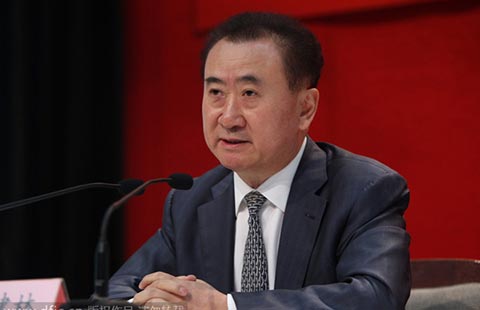Measures set to improve supply
By Li Jiabao (China Daily) Updated: 2012-07-12 09:16
China's State Council issued a document on Wednesday to improve the domestic circulation of consumer goods and boost the development of supply chains.
Economists said that the document aimed to expand domestic consumption amid a slowdown in the world's second-largest economy mainly resulting from slowing growth in the country's exports and curbs on the real estate industry.
In the first quarter of this year, China's GDP growth rate slowed to a three-year low of 8.1 percent, because of weakening demand in global markets amid the deepening eurozone debt crisis.
Foreign trade grew 8 percent year-on-year in the first half of this year, missing the 10 percent growth goal set early this year.
The country's 12th Five-Year Plan (2011-15) underlined that the major force for economic growth will be shifted from exports to domestic demand, especially domestic consumption.
"The supply-chain industry has developed into a fundamental and forerunner of the country's economic growth," Premier Wen Jiabao said during an executive meeting of the State Council on Wednesday.
But he added that low efficiency and high costs prevail in the industry.
"Efforts will be made to build up a modern network of supply chains. Commercial networks in rural areas will be increased. And channels will be established to improve the circulation of agricultural and industrial products between rural and urban areas," said the document.
Huo Jianguo, president of the Chinese Academy of International Trade and Economic Cooperation, a think tank under the Ministry of Commerce, agreed.
"The main problem is that high costs in supply chains drive up prices. Reform will lower the costs and expand the domestic market, as well as boost domestic consumption.
"There are still too few supermarkets in rural areas, and there is great potential for home-appliance consumption," Huo said.
The government will also boost the development of e-commerce to facilitate the production and sale of agricultural products.
"In the long run, the establishment of e-commerce or online trading systems is of great significance to reform the country's supply chain because it will reduce supply-chain costs and boost consumption," Huo said.
Public facilities such as market stalls will be installed or improved. While the government will boost large supply-chain enterprises to form core competitiveness, small and medium-sized enterprises in supply chains, especially small and micro-enterprises, will be encouraged to develop professionally or with special characteristics, according to the document.
"Private capital is welcome in the supply-chain industry to break monopolies, and the use of foreign capital in the sector will be improved," said the document.
Expenses in supply chains will be pragmatically reduced and supportive measures will be increased. "In a certain period, land-use and property taxes will be exempted when establishing wholesale agricultural produce markets and farmers' markets in cities and towns," said the document.
"These measures are very important, but it will take some time for them to take effect. Also it requires other supportive measures, including fiscal support," Huo said.
lijiabao@chinadaily.com.cn
- Domestic airplane makes its debut
- New plane seen boosting Chinese aviation industry
- HSBC plans JV with Shenzhen Qianhai
- Equities decline on weak factory data
- Over 40% of China's online sales counterfeit, shoddy: Xinhua
- China's CNNC may buy into French nuclear company
- Air China makes maiden flight to Ethiopia's capital
- New HP Enterprise sees big opportunity in China















